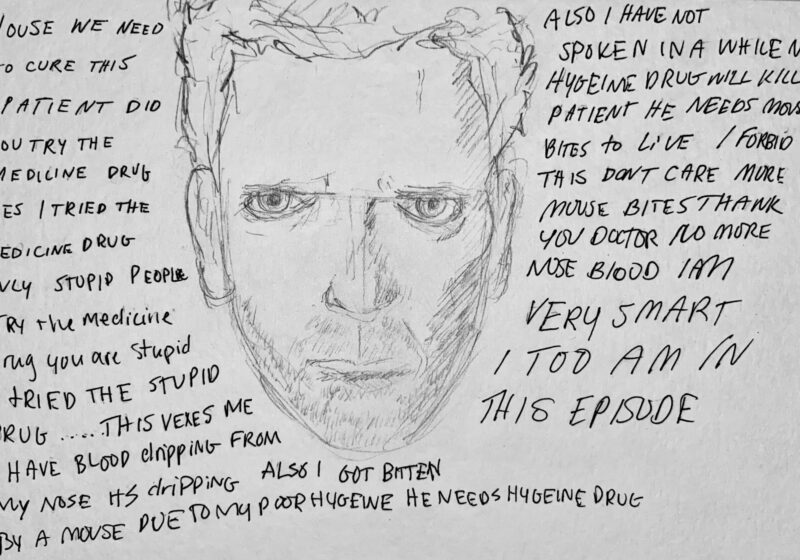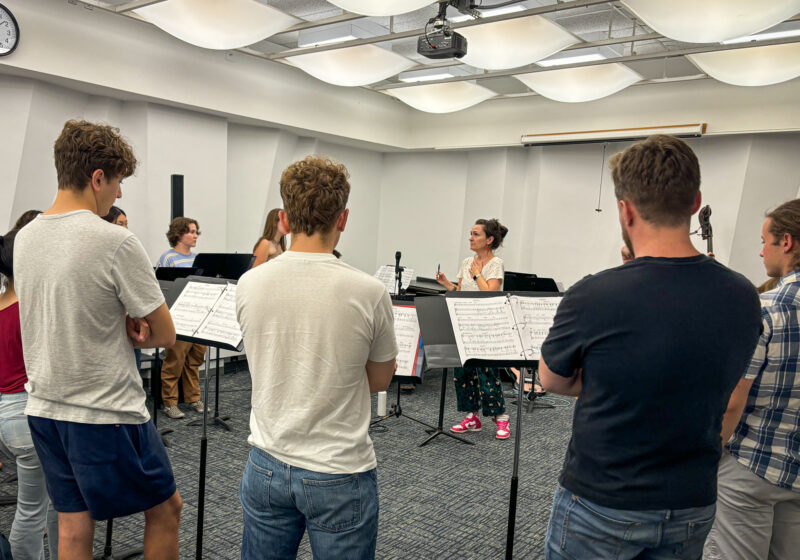The speakers at Monday night’s ‘Health Care and the 2008 Election” panel addressed the growing problems with the current U.S. health care system and the effectiveness of Senators Barack Obama and John McCain’s proposals to resolve these issues.
The Charles Drew Pre-Health Society (CDrew) sponsored the panel of speakers that included Simon Graduate School of Business Professor Gerald Wedig, Health Services Research and Policy doctoral student Matthew Testa-Wojteczko and primary care physicians Emily Queenan and David Stornelli. Within 15 minutes of its start, Gleason Hall Room 318 held nearly 130 students.
The president of the Charles Drew Pre-Health Society and junior Alex Kravitt introduced the speakers, and then Wedig started the discussion by presenting topics that he felt the candidates should include in their proposals.
Wedig said that the real issues that the candidates must address include the increasing number of uninsured Americans, the insurance market’s failure to provide complete coverage against the onset of illnesses and the high chance of the Medicare Plan A fund to deplete in 10 years.
According to Wedig, the advantages of McCain’s proposal include equality among all individuals and the use of subsidies and tax credit, $2,500 for individuals and $5,000 for families, to compensate for high premiums.
The advantages of Obama’s proposal include the incremental progression of universal coverage toward National Single Payer Health Care. Neither plan, however, completely addresses how the government will fund his proposals.
Stornelli, a UR Medical Center Alumnus, and Queenan stated that candidates must address the way their proposals will be financed and determined, who will deliver them and whether or not Americans actually care about the topics being proposed.
Unfortunately, the proposals do not answer all of Stornelli and Queenan’s questions. First, in opposition to McCain’s proposal, they asserted that technology is not a remedy because there is a disparity between the quality and price of the medical machines. Secondly, there are far fewer primary care physicians (PCPs) in the United States than in foreign countries. Thus, with Obama’s universal coverage proposal, there will be a shortage of PCPs, who determine the cost of health care.
Among the topics that individuals care about are the 15 percent overhead costs that many private health care insurers have instead of the three percent overhead that Medicaid has. Such overhead costs trim employees’ wages.
Stornelli and Queenan are members of the Physicians for a National Health Program and believe that neither political candidate has the correct plan, but rather HR676, which is a bill in the House of Representatives that currently has 93 co-sponsors, appears to be the most promising plan so far. Queenan is pessimistic about the increase in value and sustainability of the current system.
Testa-Wojteczko believes that the major problems with health insurance plans include adverse selection, moral hazard, price insensitivity and job lock.
Adverse selection encourages separation such that healthy individuals would pay $12 for a mediocre health plan, while $14 would provide an unhealthy individual with many more options to turn to.
Moral hazard with a community-rated plan where the cost is equal for unhealthy and healthy individuals obligates healthy individuals to pay more than necessary.
Price insensitivity arises due to the indifference between plans for healthy and unhealthy individuals.
Job lock causes individuals to choose careers based on health benefits.
Near the end of the forum, the speakers expressed skepticism over both candidates’ proposals.
‘McCain’s deregulated health care may introduce useless health care options, increased prices and higher income taxes,” Queenan said.
Queenan believes that none of the plans include cost containment and none improve PCPs’ options.
He believes that the development of a National Health Insurance Exchange under Obama’s plan would allow the government to take advantage of its power such that it may cut funding to private insurers.
All speakers agreed that covering every individual would be essential toward reaching a similar level of care achieved by other industrial nations.
Following the event, Vice President of CDrew and junior Suman Gedala commented on the speakers.
‘We wanted some agreements and disagreements, and there was definitely some of that between the speakers today,” he said.
Sharma is a member of the class of 2010.





